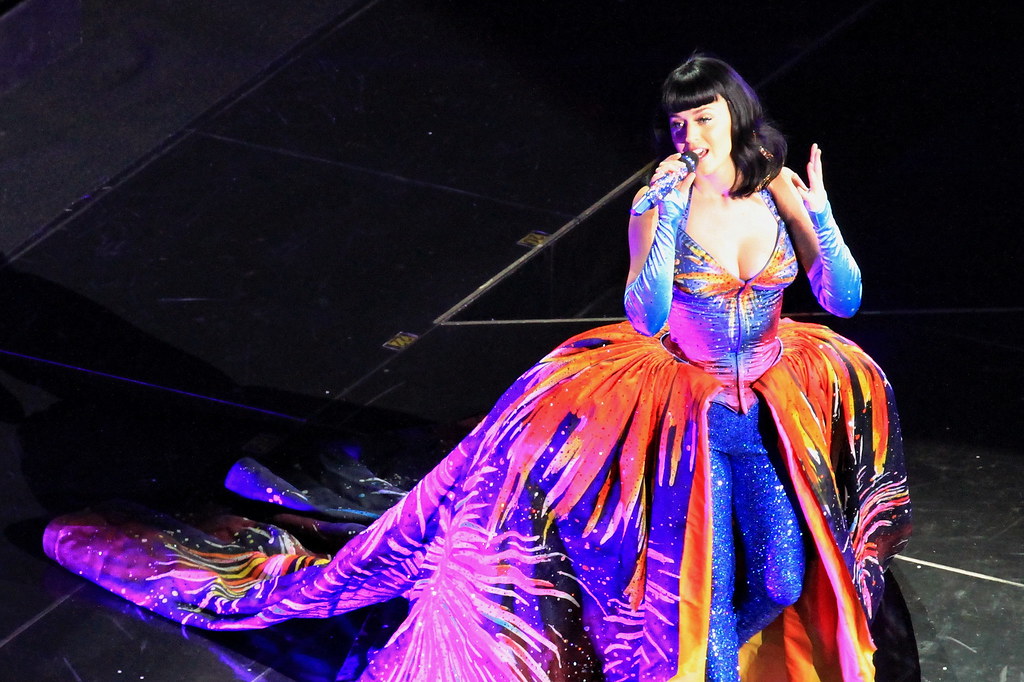In the cosmic collision of ego, capitalism, and unresolved industry trauma, Katy Perry‘s 11-minute space joyride has crash-landed right back into a social media firestorm. The pop star’s Blue Origin mission—supposedly a girl-power milestone—imploded faster than a 2007 Britney VMAs performance when Wendy’s social media team decided violence was absolutely on the menu.
After Perry’s return to Earth was announced on April 15, Wendy’s fired the kill shot with five devastating words: “Can we send her back.” Not a question—a demand. The tweet spread through the internet’s atmosphere like the unstoppable wave from that disaster movie where everyone stares at the ocean too long.
(You know how it feels when your carefully crafted Instagram caption gets two likes while your friend’s blurry food pic goes viral? Katy’s space achievement just got Wendy’s-ed.)
The Silent Grenade
Enter Kesha—queen of glitter, survivor of music industry warfare, and now, apparently, endorser of fast-food shade. Without typing a single character, she dropped a photo holding a Wendy’s cup, smirking like someone who just watched their ex trip on a sidewalk crack. The image hit with the subtle devastation of that record scratch sound effect when a party dies.
“I love me a shady Kesha,” wrote one fan, while others connected the obvious dots to Dr. Luke, the producer who Kesha accused of assault in 2014 and who Perry controversially reunited with for her 2024 album “143.” That alliance aged about as well as those “Live, Laugh, Love” signs in millennial apartments.
The Patriarchy Strikes Back
This isn’t random celebrity pettiness—it’s the latest battle in a war that’s been raging since Kesha filed sexual assault allegations against Dr. Luke nearly a decade ago. The producer denied everything and countersued for defamation, with the legal bloodbath finally settling in June 2023 after years of industry fallout.
Meanwhile, Perry’s decision to collaborate with Dr. Luke on “Woman’s World” gave the same energy as those corporate Pride Month logos that disappear on July 1. Her defense in a September 2024 “Call Her Daddy” podcast—claiming the song “comes from me” while acknowledging Luke as “one of many collaborators”—landed with all the conviction of a studio executive promising “creative freedom.”
The Space Charade
The Blue Origin mission that launched this drama—featuring Perry alongside CBS’s Gayle King, Bezos’ fiancée Lauren Sánchez, and scientists whose credentials got lost somewhere between the press releases—was marketed as revolutionary girl power. But critics saw through the performative feminism faster than fans spotted the AutoTune on a live awards show performance.
Actress Olivia Munn called the trip “gluttonous,” noting that “there’s a lot of people who can’t even afford eggs” while celebrities take vanity space rides. The “space sisters” branding (Perry’s term) hit with all the authenticity of a major label’s “organic” TikTok campaign designed by executives who still use Facebook.
Power Chords and Power Dynamics
This triangular tension between a pop star, a fast food chain, and a fellow singer reveals the music industry’s twisted power dynamics playing out in real time. What once festered behind closed studio doors now explodes across social platforms, with corporations playing Greek chorus to the industry’s ongoing tragedies.
Perry’s post-flight rhetoric about “making space for the future” crumbled under the weight of critics who saw the mission as a publicity stunt wrapped in feminist packaging. Like an overwrought concept album that forgets to include actual songs, the space journey’s message got lost in its own spectacle.
As this galactic drama continues to orbit social media, one cosmic truth emerges: fame may take you to space, but it can’t shield you from the gravity of your choices. And sometimes your biggest fall comes not from space, but from a single tweet, served with fries on the side.


























